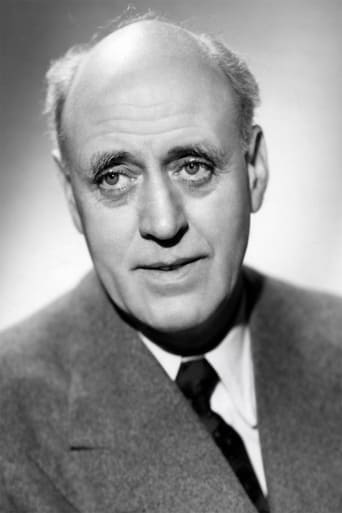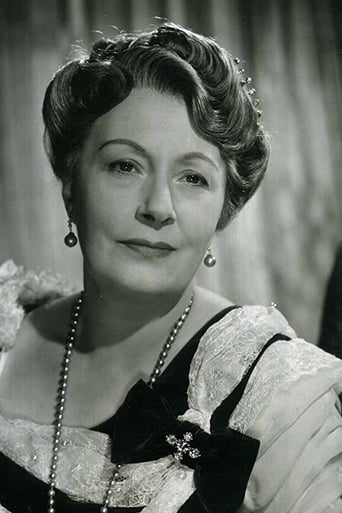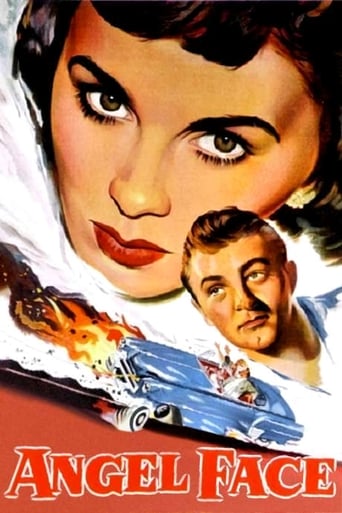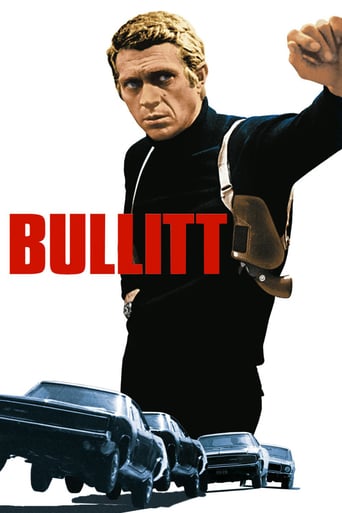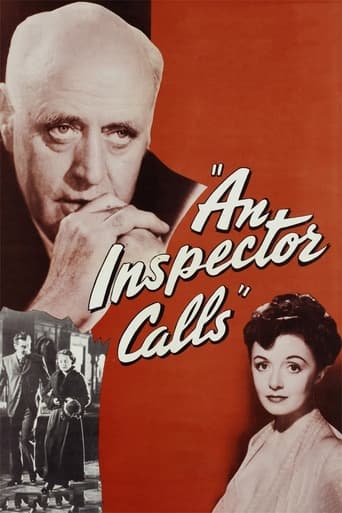
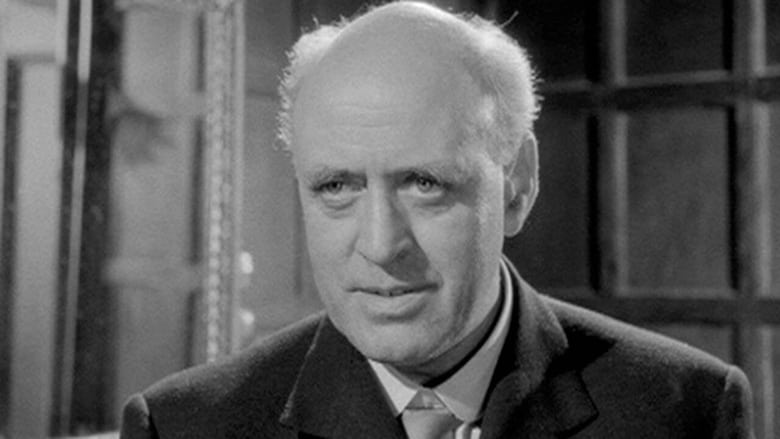
An Inspector Calls (1954)
An upper-crust family dinner is interrupted by a police inspector who brings news that a girl known to everyone present has died in suspicious circumstances. It seems that any or all of them could have had a hand in her death. But who is the mysterious Inspector and what can he want of them?
Watch Trailer
Cast
Similar titles
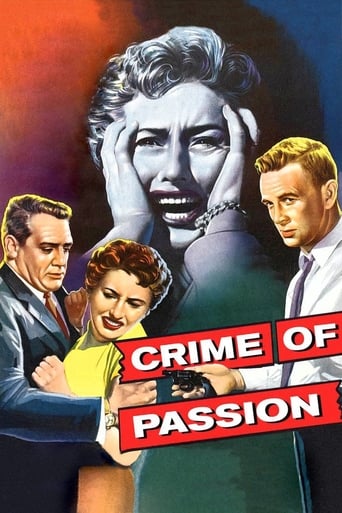

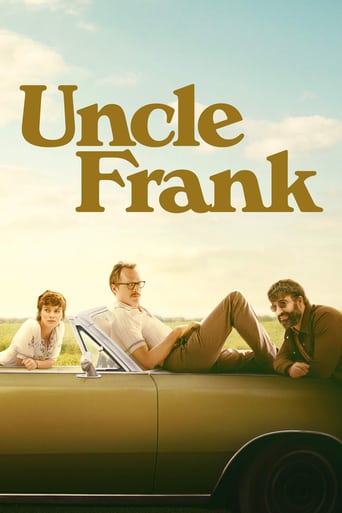
Reviews
Save your money for something good and enjoyable
People are voting emotionally.
Excellent, Without a doubt!!
There's no way I can possibly love it entirely but I just think its ridiculously bad, but enjoyable at the same time.
A upper class family are celebrating round a dinner table one evening when they receive a visit from Inspector Poole (Alastair Sim). The inspector informs the family that a young woman that they all know has died. Due to the fact that everyone in the family knows the victim, the Inspector begins to question each member of the family to try to uncover the truth surrounding her death.An Inspector Calls is a film adaptation of a JB Priestley play and the film does have a very stagy feel about it. However, once Inspector Poole arrives the film never lets up and I was fully wrapped up in the story. Like any mystery film the less you know about it beforehand the better the experience is likely to be for you. The nature of the narrative had me hooked as I was never really sure which direction the film would take me in and how it was going to end - in other words it kept me guessing. The ending is both surprising and thought-provoking.Aside from a good narrative, the film also benefits from excellent performances from the cast with Sim arguably being the strongest player. The way he interrogates the family and gets information out of them is also top-notch and very clever.This is a great film and uses a very simple premise and uses it well and to good effect. The running time of 80 minutes keeps everything tight and ensures that this film never outstays his welcome.
"An Inspector Calls" is a socialist parable thinly disguised as a detective thriller. One evening in 1912, Arthur Birling, a wealthy industrialist and former Lord Mayor of a large provincial city, is hosting a dinner party to celebrate the engagement of his daughter Sheila to Gerald Croft, the son of another upper class family from the same city. The party is interrupted by the arrival of a police Inspector who states that he is investigating the death of a girl named Eva Smith who once worked in Birling's factory. None of the family is suspected of murder; the death was clearly suicide. Under the Inspector's questioning, however, it is revealed that each member of the family was in some way linked to her death in that it was their mistreatment of Eva which helped driver her to kill herself.Arthur dismissed Eva from his employment for asking for higher wages. Sheila, who had taken a dislike to her, engineered her dismissal from another job as a shop assistant. Gerald kept Eva for a time as his mistress and she was also for a time the lover of Arthur's son Eric, who got her pregnant. When, in desperation, Eva appealed for assistance to a local charity, she was turned down by a committee chaired by Arthur's wife Sybil.The film is of course based upon the well-known play by J.B. Priestley. Whenever stage plays are adapted for the screen it is common practice to alter the playwright's original text by what has become known as "opening up", using a much greater variety of locations than would be practicable in the theatre and showing us characters and events which are referred to but never seen on stage. In the fifties, not all films were "opened up" for the screen, but this was done with "An Inspector Calls". Although in other plays, such as "Time and the Conways", Priestley enjoyed playing tricks with time, in this one he observes the Classical Unities of place, time and action, the whole action taking place in the Birlings' dining-room over the course of a single evening. Eva Smith is often referred to, but never seen. In the screen version, however, we see the whole of Eva's story and her relationships with the various members of the family, told in a series of flashbacks.There are, however, occasions when "opening up" might with greater accuracy be called "closing down", and this film is an example of what I mean. In both play and film the Inspector (known as Inspector Poole here, Inspector Goole in the play) is a mysterious figure. Priestley leaves it deliberately ambiguous as to whether he is a genuine police Inspector, an impostor, a symbolic personification of justice or conscience or a supernatural figure. (The name "Goole", pronounced "ghoul", may hint at this last possibility).Something else left ambiguous is whether "Eva Smith" is one person or several. It would, after all, be a remarkable coincidence if every member of the family, quite unknown to one another, had had dealings with the same woman. In the play the possibility is left open that Goole may have misled the family into believing that they had all known the same person, whereas there may be as many as four women involved- the real Eva Smith who was sacked from Birling's factory, the unnamed shop girl, Gerald's mistress who goes by the name Daisy Renton and Eric's lover, also unnamed, who later asks the charity for help. This is an interpretation which has been favoured by some commentators on the play; Priestley's main purpose was not to construct an Agatha Christie style "whodunit" but to emphasise the various ways, both economic and sexual, in which the upper classes took advantage of those whom they saw as their social inferiors. In the film, however, where Eva actually appears and is played by one actress, Jane Wenham, this interpretation is effectively "closed down", and in my view this rather detracts from the richness and complexity of Priestley's play.Despite this, "An Inspector Calls" is a pretty good film. On the acting side, Wenham was rather too genteel for the working-class Eva and I felt that Eileen Moore was perhaps too attractive as Sheila; it is suggested that Sheila was partially motivated by jealousy of Eva's looks, and the stunning Eileen does not look like a girl who would need to be jealous of anyone. With those exceptions, however, all the actors are very good, and Alastair Sim as Poole is something more than good. The play was also filmed for British television in 1982 with Bernard Hepton as Goole. In that production, Hepton played the Inspector as a rather harsh, abrasive character, perhaps more in line with the way Priestley described him. Here Sim makes him much more smooth, persuasive and insinuating- yet makes us believe that this is just as valid an interpretation of the role.Despite Priestley's left-wing views, he was regarded with some suspicion by the "Angry Young Men" of the fifties, who saw plays like "An Inspector Calls" as the sort of drawing-room drama they were reacting against. The "Angries" preferred to depict working-class life via the medium of social-realist drama rather than discuss working-class problems from the perspective of middle-class metaphor. this may have influenced the decision to show Eva in the film; the only working-class character in the play is the maid, who plays a minor role. Ironically Priestley was to remain a socialist throughout his long life, unlike some of the "Angries" such as John Osborne, who were to move sharply to the right, and although not all of his work is well-remembered today, "An Inspector Calls" has been rediscovered as a classic of the British theatre, particularly since Stephen Daldry's famous 1992 production. This film helps show us how it was interpreted by an earlier generation. 8/10
I can't, of course, prove it but the cynic in me says that Arthur Miller ripped off Priestley's An Inspector Calls, which was produced on stage in 1946, a full year before Miller's All My Sons. Not so much the plot - although even here there are similarities; Priestley set his play in the English Midlands in 1912, on the eve of the First World War and it revolved around a young woman who committed suicide after being used and abused by four members and one member-to-be of an affluent family, Miller set his play in the American mid-West in the wake of the Second World War and it revolves around the suicide of a young man who discovered that his father, a war profiteer, was responsible for the deaths of several pilots - as the theme that we are all responsible for each other. The play was revived by the Royal National Theatre in London about ten years ago and featured a spectacular 'theatrical' effect. Guy Hamilton's film version contents itself with introducing the Inspector dramatically and effecting his disappearance in much the same way; in between he relies on his cast. As the play is to a great extent actor-proof this is no bad thing although it is easy to see why Bryan Forbes abandoned acting for directing before the phone stopped ringing. It's also interesting to speculate why George Cole, who made his first film in 1941 and had appeared in some 25 by 1954, agreed to one uncredited scene as a bus conductor in one of the few 'opened out' scenes. Overall this remains a very watchable entry.
This plays just fine as a straight forward mystery movie, but the play has more potential than that and as a straight forward mystery without the rich suggestive overtones the plot is admittedly a bit out there. So when you play something straight that isn't straight what you get is this.Guy Hamilton doesn't add much to the proceedings and the performers mostly go through the motions in a surface way that is totally at odds with the material. There is no building sense of doom or desperation to most of the thing. It's slow and steady. Actually much of the flat footed surface approach I'd put the blame on Hamilton. At his worst he was one of those, "oh this is all just a movie" approach to too much of his output. Part of this made him perfect for Goldfinger but also helped camp up and ultimately start to wreck the Bond films later on. Most of his pre Goldfiner work is, like this film, pretty flat.The music score is pretty lousy, though there isn't much of it, especially the stupid end credit music that further eats away the tone of the piece.There are risky elements for the time and had the film been made in America then it would have been a disaster. Sim is quite good but perhaps a bit too laid back, though he has most of the best moments performance wise, it is again a bit of a missed opportunity to have him not rip loose ever. His expression at the end is memorable. The young brother and sister character's probably come off best, though Bryan Forbes drunk act at one point turns into a good Stan Laurel or Charlie Chaplin thing, that isn't really appropriate.Well photographed and produced, the DVD is spotless. I suppose most or anyone who's heard of this story saw the lat 90's revival which I liked better than this film.So if you prefer your drawing room mysteries done very dry and very safe you'll love this film and it's good on that level if you can still buy into the things that don't stick perhaps to convention.But we'll have to wait for a less safe, more dramatic version of the very good source material rather than this film which prefers melodrama.
